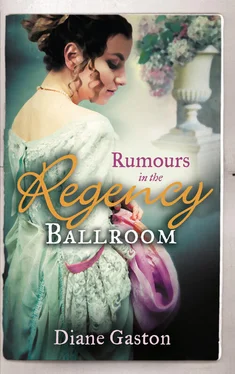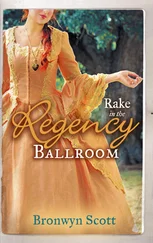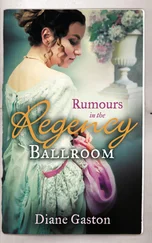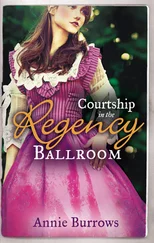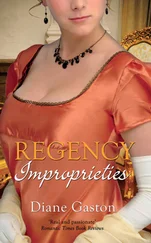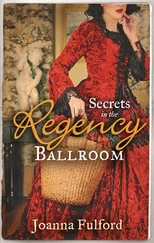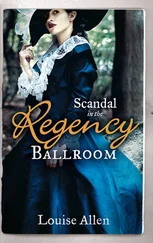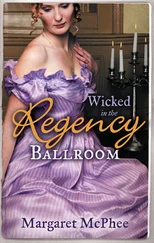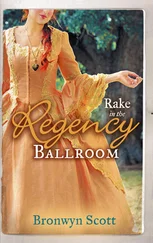Perhaps he should visit Tanner after all. Tanner had written to invite him to Scotland where he and his wife were spending the summer months and awaiting the birth of their first child.
Ha! Not likely he would be welcome there. What was this with having babies? Was every woman bearing a child this summer?
Adrian vowed he would not think of that. Nor of Lydia refusing his proposal.
But Tanner had also offered Adrian another of his estates, Nickerham Priory in Sussex. Adrian had visited Nickerham with Tanner on Tanner’s tour of his properties the year before and could agree it would be an excellent place to spend a summer. High on a cliff overlooking the sea and cooled by sea breezes, there would be nothing to do but ride the South Downs or walk along the seashore.
Adrian might very possibly go insane there, left to nothing but his own company and his own thoughts.
Vowing to write Tanner a gracious return letter this very day—or tomorrow—Adrian crossed into Hill Street. He rarely walked through Mayfair without finding himself passing by Lydia’s townhouse.
He spied the reporters lounging about her door and became angry on her behalf all over again. The leeches. Why did they not leave the lady in peace? Why could they not content themselves with writing about the thousands of weavers assembling in Carlisle in protest against low wages, the trade crisis in Frankfurt, or an earthquake near Rome? Why devote so much space to speculation about Lydia? He’d read in the papers that the father of her child was anyone from the Prince Regent to a passing gypsy.
Was she in good health? he wondered. Bearing children might be the most natural thing in the world, but many women died from it. Babies died, as well. His mother had borne Adrian a brother and sister, neither of whom had lived longer than a few days.
Staying on the opposite side of the street, Adrian tried not to glance at her house. Another gentleman approached in the opposite direction.
“Good day to you, Cavanley.” The gentleman greeted him in clipped, but jovial tones.
“Crayden.” Adrian tipped his hat.
Crayden possessed thick black hair that women fancied and a face that always held a smug expression. Adrian was not among Crayden’s admirers. Crayden curried any favour that was possible to curry. He insinuated himself into investments lucrative enough to keep his debt-ridden estate from doom’s door, but he was equally as likely to drop a friendship if it failed to gain him a profit.
Lord Crayden smiled his ingratiating smile and put his hand on Adrian’s shoulder as if he was accustomed to sharing confidences with him. “I suppose I shall have to run the gauntlet, eh? I am calling upon Lady Wexin, you know.”
No, Adrian didn’t know, and he did not very much like knowing it now. What business did this ferret have with Lydia? Lydia’s fortune was modest, Adrian knew for a fact, having been the one to restore it.
“Are you?” Adrian said.
“I am indeed.” Crayden clapped Adrian on the shoulder and winked. He crossed the street and ploughed right into the nest of newspaper men, who clamoured after him, waving their hands and asking him questions.
Adrian watched as Lydia’s butler answered the door, and Crayden said with a voice loud enough to reach Adrian’s ears, “Lord Crayden to see Lady Wexin.”
The reporters all pressed forwards, yelling their questions. After Crayden gained entry and the door was closed again, the newspaper men buzzed among themselves for a moment, before turning to look towards Adrian.
Adrian hurried on his way.
Lydia walked to the window of the drawing room and peeked through a gap in the curtain. She thought she’d heard a commotion outside. The newspaper men were still there, all talking about something, but it was not their vile presence that caught her attention, but the figure of a man across the street, looking towards her house.
She’d know Adrian anywhere, even from such a distance, even with his hat shading his face. Had he decided to call upon her again? Even though she’d refused him?
No one called upon her. No one except Lord Levenhorne and he did so merely to check the size of her waistline.
She ought to feel outrage that Adrian would ignore her wishes so blatantly, but instead she felt flushed with excitement. The baby kicked inside her. The baby kicked often now and would be born soon, the physician who attended her said.
She rushed over to the mirror above the fireplace and checked her appearance. Her hair hung undressed in a plait down her back. The gown she wore was an old one Mary had let out so her now larger breasts would not spill over the bodice, and her big tummy would be shrouded by a full skirt. She contemplated changing, but feared nothing else would be ready to wear except nightdresses and robes, and she did not trust herself in such attire around Adrian.
In any event, there was no time, because Dixon entered the room. “There is a Lord Crayden to see you, my lady.”
“What?” She thought she had misheard him.
“Lord Crayden, my lady.” He held out the gentleman’s card.
She stared at it, her spirits plummeting. It was Adrian she wanted to see, wanted to be with even for a little while. She pined to see his eyes filled with concern for her, to feel less alone in his presence.
“But why would this gentleman call upon me?” She handed the card back to Dixon.
She had not even seen Lord Crayden in an age. He had once been a suitor, but never a favoured one. He had no connection to her family or to Wexin’s. He certainly was not a friend. His biggest shortcoming, however, was that he was not Adrian.
“I do not want to see him,” she said.
Dixon bowed. “Very well, my lady.” He turned to leave.
“Wait.” She stopped him. “Do you suppose he has been abroad and brings news of my parents?”
It was the only reason she could think of that the gentleman would call. One letter from her parents, dated months ago, had finally reached her from India, but, from its contents, it was apparent that none of Lydia’s letters had reached them.
“He did not say so, my lady,” Dixon replied.
“Well, send him up, I suppose.”
A few minutes later Crayden was announced.
“Lady Wexin.” He bowed.
She took a step towards him. “Lord Crayden, do you bring me news?”
“News?” He looked puzzled.
“Of my parents? My brother?” She braced herself.
He blinked. “They are abroad, are they not?”
She released a frustrated breath. “You do not bring news of my family? Why are you here?”
He smiled, showing his white, even teeth. “I call merely to inquire after your health—and to offer my condolences.”
She did not believe him. “Condolences? I’ve been a widow for three-quarters of a year.”
His expression turned sympathetic. “I thought it best not to cause comment by calling upon you sooner.”
Such as during the brief time after the Queen had died when the newspapers had left her alone? “So you choose now when I am written of daily, with one man after another connected to my name?”
He gave no indication he perceived her barb. “I thought you might need a friend at this difficult time.”
When Adrian had offered her friendship she had almost believed him. This man she believed not at all.
“Lord Crayden, I knew you only very briefly during my come-out.” And then she’d refused his suit. “It is presumptuous of you to call upon me. Indeed, it makes me very unhappy. You expose me to more gossip I do not deserve.”
A wounded look crossed his face. “My lady, my intentions are honourable, I assure you. I have always had a regard for you, as you well know—”
A regard for her dowry, he must mean.
Читать дальше
